
“So many of our fellow Americans see the American flags being desecrated at Hamas rallies in college quads and city streets. They know that these monsters hate America as they hate the Jews. They know that victory over the enemies of the Jewish people here and overseas is a victory for America,” Rabbi Dr. Meir Soloveichik said at Tikvah’s Jewish Leadership Conference in New York City last week.
“And what this all means is that the stage is not set for darkness and despair, but for Jewish heroism in this country, in alliance with so many that stand with us.”
It was Tikvah’s seventh annual conference, and with 1,000 attending, its largest yet. The 2024 Herzl Prize was given to Dr. Ben Sasse, former Republican senator of Nebraska and former president of the University of Florida. The line-up of prominent speakers included Ruth Wisse, Dr. Yuval Levin, Melanie Phillips, former Ambassador Michael Oren, former Ambassador Nikki Haley, Jonathan Haidt and Shabbos Kestenbaum.
Tikvah has always been focused on the philosophical foundations of both Judaism and the United States. The theme this year, “The Jewish Fight for America,” “begins with the recognition that the United States has been an exceptional home for its Jewish citizens, unparalleled in the long history of the Jewish diaspora,” write Elliot Abrams, Eric Cohen and Jonathan Silver in the program. “But that gratitude also compels us to fight to preserve the moral foundations and civic practices of America at her best. In that struggle, Jewish ideas and Jewish communities have an outsized role to play. We believe that education rightly understood — moral and intellectual formation — is at the heart of American renewal and the perpetuation of the American way of life.”
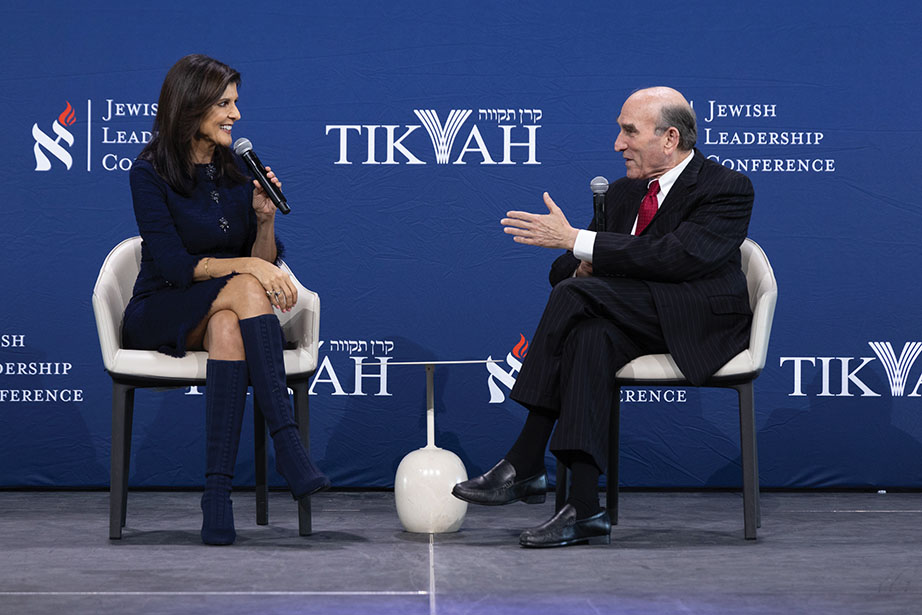
The focus this year is on “the responsibilities incumbent on us to strengthen the qualities that make America exceptional.” Or as Ruth Wisse put it: “With agency, comes responsibility.”
Post-liberalism
Rabbi Soloveichik compared today’s “age of clarity” to Winston Churchill’s prophecy.
Churchill understood that the purportedly blissful times between the wars were actually “an age of illusions.” That, in fact, “it was a time when evil was allowed to fester, when the seeds were sown for the danger and destruction that was to come. A time when his own prophetic warnings were ignored, culminating in the cheering of Chamberlain’s ‘peace in our time.’”
When Britain stood alone against Nazi Germany, what was clear to him years before had suddenly become clear to so many. “The current moment, which was seen by many as a dark time, was actually an age of clarity because now suddenly, so many understood that for which they fought and as importantly, they understood what they were fighting against.”
During the purportedly golden age of American Jewry, “much was not well and the seeds were being sown for the dangers yet to come. American Jews contributed to elite universities in ardent philanthropic manners, even as the intellectual rot was already festering, giving us claims about colonialism or postmodernism, Edward Said and Rashid Khalidi, an anti-American hatred of the West.”
Indeed, more than a month after the election, we have yet to see a reckoning on the left, let alone in the Democratic Party. If anything, the left is showing that it’s continuing in the wrong trajectory.
The left in general, and the Democratic Party in particular, have become mired in what Tikvah calls post-liberalism: A rejection of pluralism; a return to tribalism.
Souls matter
“In a republic, souls matter,” said Ben Sasse in his acceptance speech.
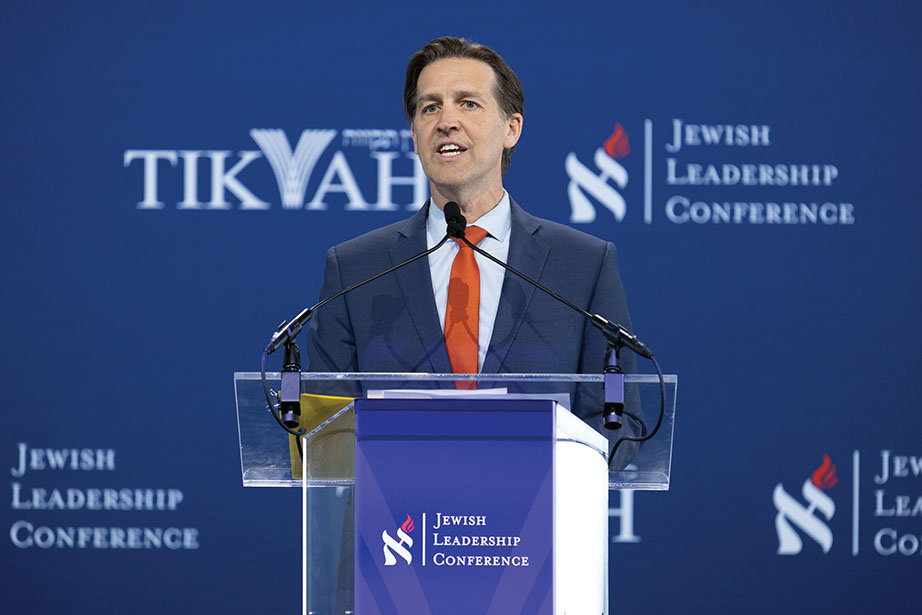
Photo: Sean T. Smith / Simon Luethi
“Governments protect bodies, but governments can never win souls,” said Sasse, quoting Ronald Reagan: “You can’t pass along America in the bloodstream or in the soil.”
“Part of the fundamental problem of our time is that from both the left and the right our decades-long vacuum, our neglect of passing on basic American civics, is now being filled by an emerging post-liberal consensus that perhaps America was a naive idea,” he continued.
“This is a faith without guardrails, without external scrutiny, without grace, and certainly without a promise of reconciliation. It requires a life of moral struggle against the devil and the world. But there is no eschatology of hope … Students are urged to catalog microaggressions and to conflate comfort with safety. Faculty who dare to treat students like adults with a sense of grit and a grand sense of potential face professional consequences. Administrators police language.
“Universities respond haplessly to mobs wielding the heckler’s veto to shut down deliberation and debate. The acceptability of the speech depends on the speaker.” This victimology, Sasse said, allowed pro-Hamas factions to target and harass Jews, “the oppressors.” Rather than pursue enduring questions about “dignity, agency, theology, brokenness, love, community, many in the academy seem poised to double down on fanaticism.”
“But here’s the good news,” Sasse said. “Americans now see this. They see the absurdities clearly in ways they didn’t just four or five years ago. And they want something better. Our universities ought to be precisely the opposite of the monasteries of victimology and tribalism and identity politics that are on offer right now.”
“Where the intersectional victimology movement gripping so many universities scoffs at beauty and at redemption, where it has no room for moral improvement, we ought to build the opposite. We get to embrace the best of pluralism and debate … We get to counter the soulless unhappy futures on offer at so many schools with something grand. We can build institutions that believe in the human and the humane.”
Such pluralism, Sasse said, depends on more than the legal protection of our liberties. It also depends on us “rebuilding and recovering strong institutions that will cultivate real virtue.”
“Pluralism thus means that we must consider and then pursue the good life. Pluralism means that families have the right to make choices and get to make the right choices about the education of their children. Pluralism means that we can and must build better schools and universities.”
Moral Inversion
In her speech, “How the Jews Remain an Eternal People,” Ruth Wisse discussed how fortunate we were to join “a country that was inspired by biblical models of freedom and responsibility. This country was founded on truths that were hardly self-evident to the Pharaohs or the Tsars. In the United States, Jews have political agency that we never had before.
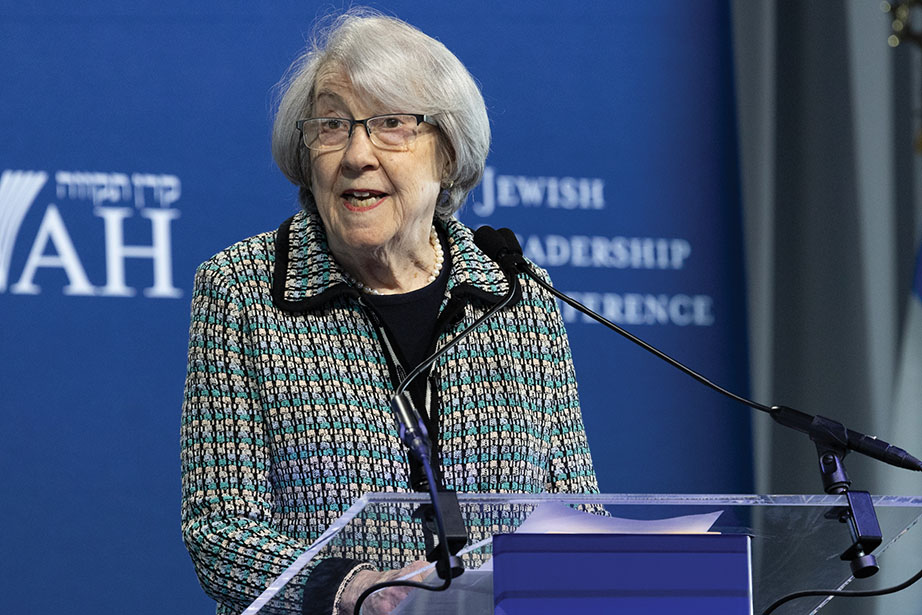
Photo: Sean T. Smith / Simon Luethi
“But here’s the corollary of this bounty,” she warned. “When enemies now strike at the Jews in Israel and here in America, we have no place to run to. So this impulse to flee, a natural instinct in times of danger, just reinforces the realization that as a people we are done with running, migration is no longer a national option.
“And that is why Oct. 7 in Israel and Oct. 8 in America have been such a shock. This war is unlike anything we have faced before. This was the first jihadist attack on a democracy that committed atrocities usually associated with so-called primitive societies … Fascists and communists had tried to conceal their sadism because they still felt part of the civilization they intended to conquer. Modern antisemitism goes after the Jews to violate and forever destroy the society that harbors them,” Wisse stated. “If you get America to betray its Jews, then you’ve proven that this country is no better than Nazi Germany, no better than Stalinist Russia and no better than Islamist Iran.”
Moral renewal
In “The Hebraic Road to American Renewal,” Dr. Yuval Levin stated that there are two facets of the cause of cultural renewal: fight and rebuild. “Renewal is what the future requires. Renewal of our tradition, of our understanding of the good and the true, of our energy for sustaining it and passing it along to the next generation. Renewal means bringing our long-standing traditions to bear on new challenges.”
Fighting and building are two very different kinds of work, but “they are inexorably connected to each other and we have to take them on together.”
Rather than seeing our traditional institutions as “long evolved ways of forming human beings toward moral improvement, opponents of cultural continuity see those institutions as built to keep some people down for the benefit of others. They look at what we’ve inherited and see only oppression and injustice. The purpose of their political and cultural work is to reject that inheritance, to liberate its victims as they see it.”
They don’t think about progress in terms of renewal, but in terms of radical transformation. “They work to inject into the work of institutions like universities and the media and major corporations an ideology of hostility to the American political tradition and to the Western religious tradition. They’re at war with precisely what we’re trying to renew and so there is no alternative to being in conflict with them in response.”
There’s no alternative to fighting and resisting and opposing them, he said. “What’s required for that fight to succeed is the courage to stand up for what we know is true against those who would bury it under a mountain of lies … The ethos I’m describing here, the ethos of the fighting scholar and the thinker with dirt under his fingernails is very much the ethos of Israel, the notion that everybody fights and everybody works and everybody reads and everybody thinks.”
This has always been the work that Tikvah does, he said, the teaching it conveys. “It builds while fighting and fights while building and it recognizes that the very essence of renewal, its means and its end, is education.
Age of Heroism
“The stage has been set for Jewish heroism,” said Rabbi Soloveitchik in a speech titled “The Beginning of American Jewry’s Golden Age.”
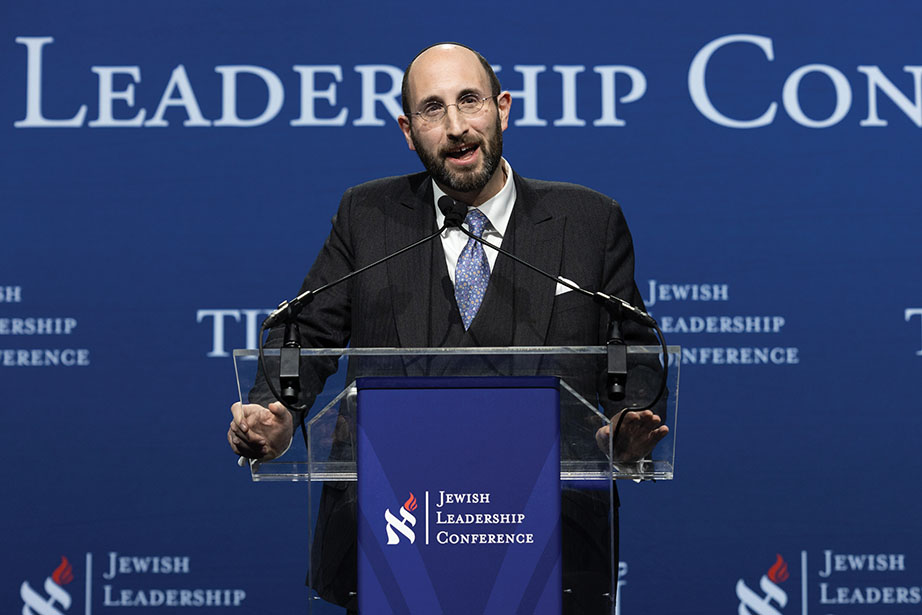
Photo: Sean T. Smith / Simon Luethi
“The Westernized Jew maintains that it is impossible to engage in both the universal and the covenantal, which in his opinion are mutually exclusive.” And this is why so many Jews seeking success in this world “have lost the courage to embrace the covenantal claims of Jewishness.
“But we are an eternal people with an eternal memory. We know which achievements will truly matter… We remember our triumphs and our failures. We remember Jewish cowardice and we remember Jewish courage.”
“Clarity and courage is better and greater than living in appeasement and illusion. And in standing courageously, we have been joined and supported by the many non-Jewish Americans that care about the Jewish people and the Jewish states. And we need to recognize what a blessing that is, how remarkable that is for our time.
“They reflect a reverence for the scriptural story of the Jewish people. As Walter Russell Mead put it, Israel’s endurance against its enemies remains for many Americans proof that, ‘God exists, he drives history, he performs miracles in real time. God’s word and the Bible is true.’The remarkable nature of the Jewish story has always inspired America.
“And what all this means is that the stage is not set for darkness and despair, but for Jewish heroism in this country, in alliance with so many that stand with us. These are days when courage truly matters. This is an age when Jewish and American heroism is possible.
“If we work courageously in defense of the Jewish people and on behalf of the America we love, then this will be remembered as the golden age of American Jewry. Or perhaps one may say that this will be celebrated as our finest hour.”
Tikvah, of course, means hope. I think it’s safe to say that the conference lived up to its name.
Karen Lehrman Bloch is editor in chief of White Rose Magazine.
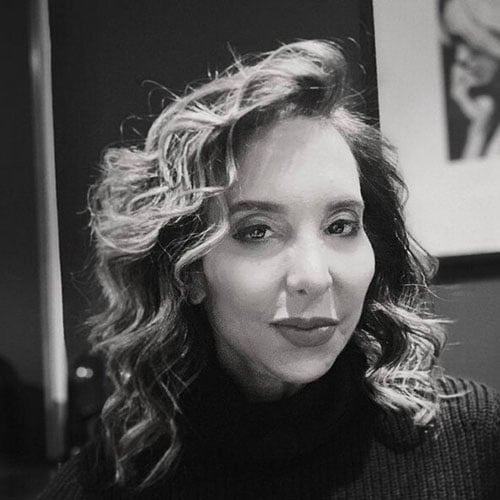







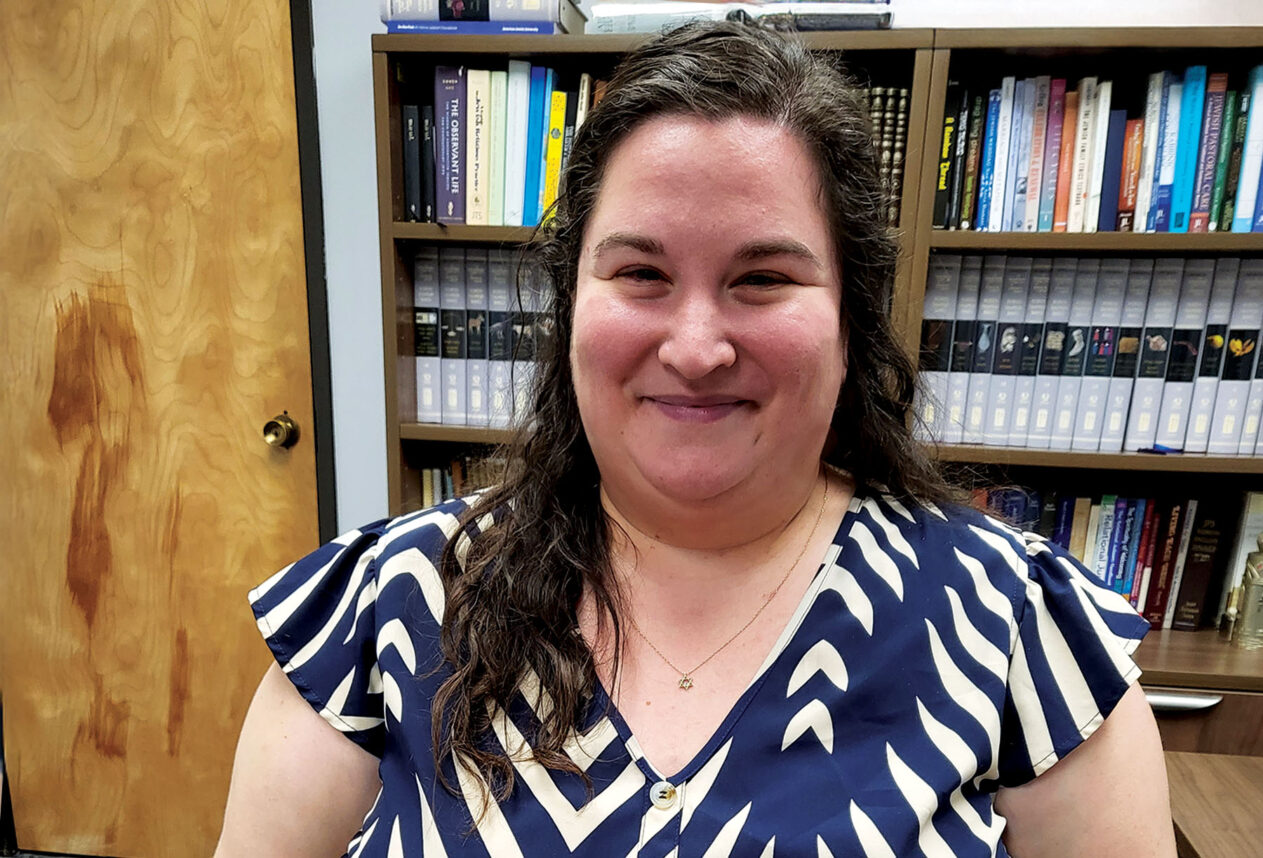
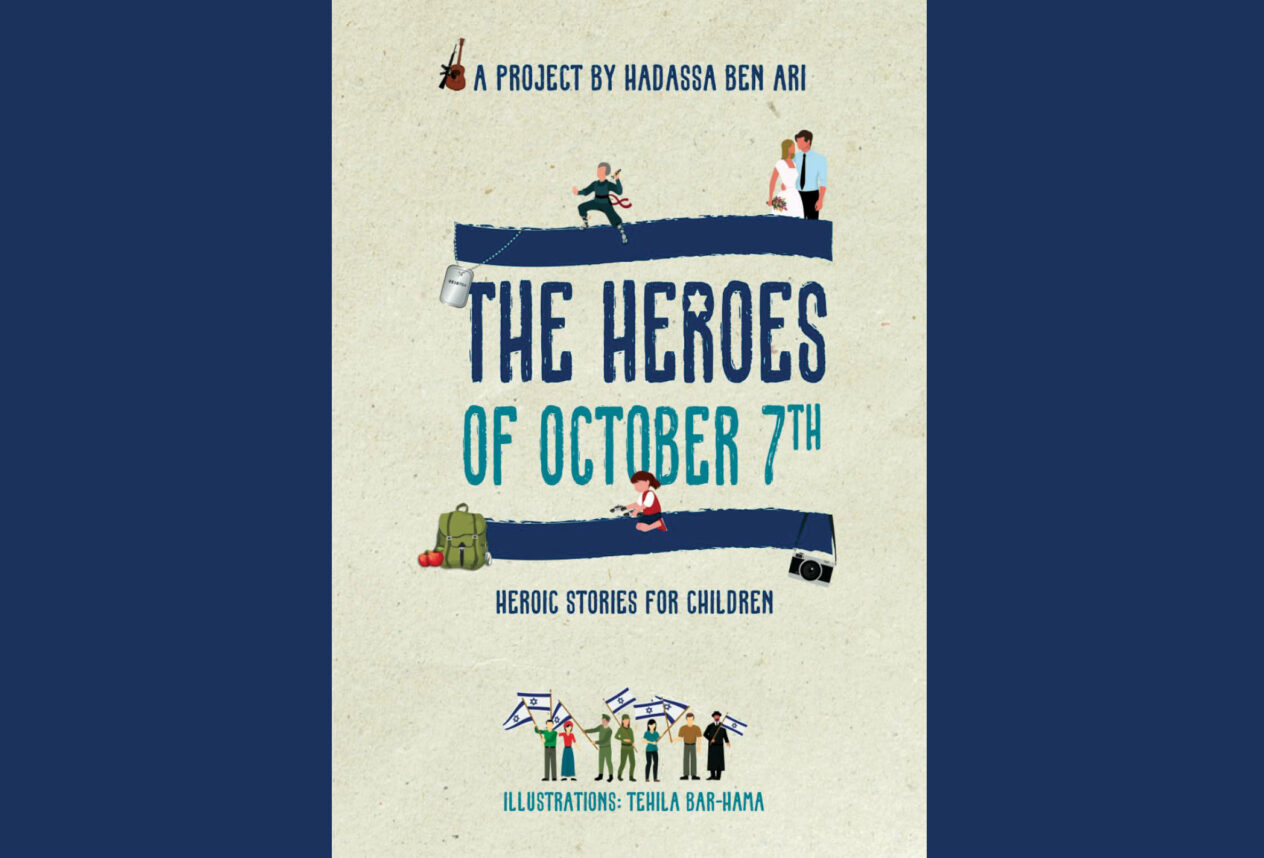

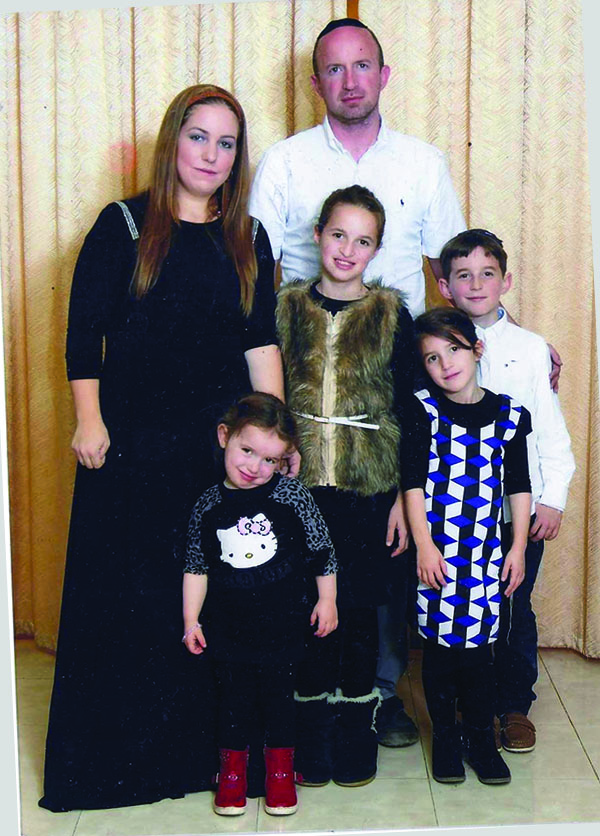



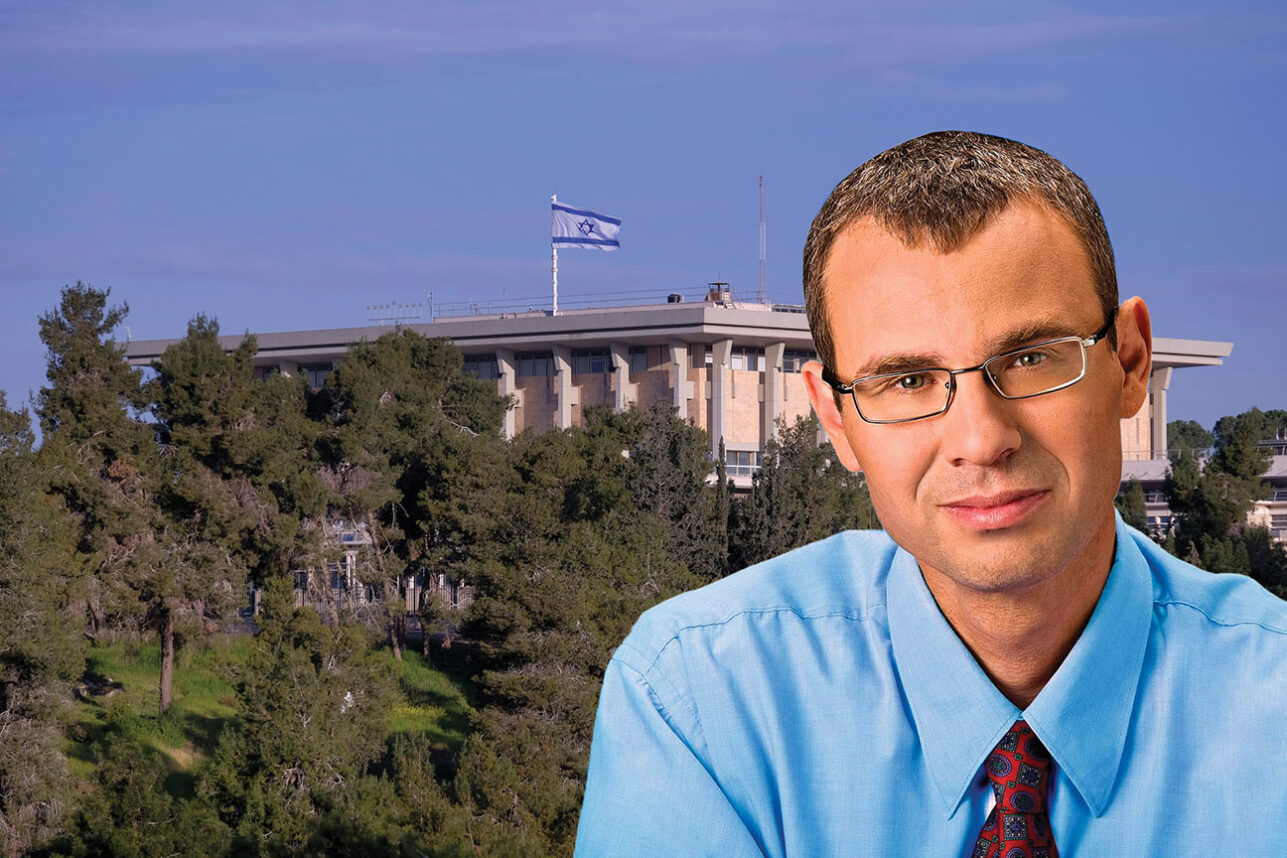
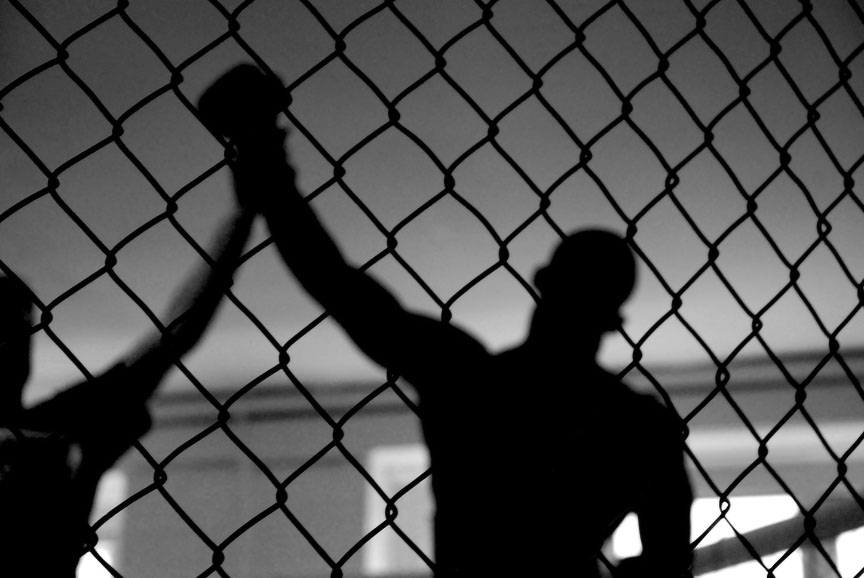






 More news and opinions than at a Shabbat dinner, right in your inbox.
More news and opinions than at a Shabbat dinner, right in your inbox.